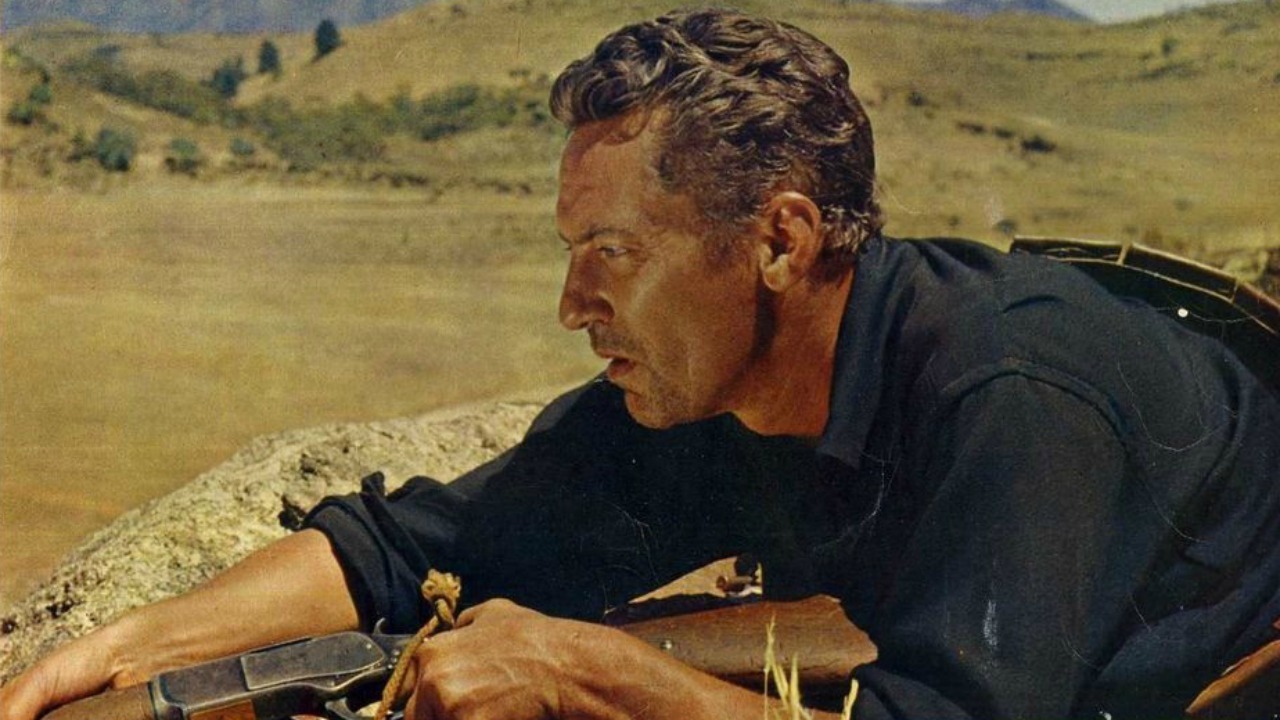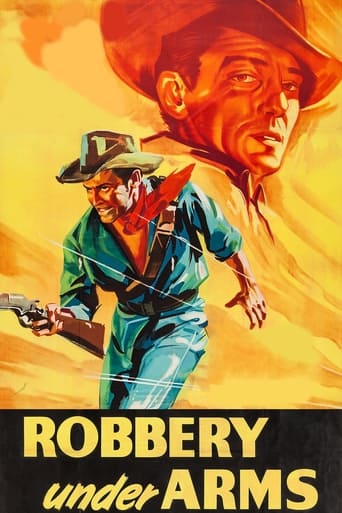Kattiera Nana
I think this is a new genre that they're all sort of working their way through it and haven't got all the kinks worked out yet but it's a genre that works for me.
Protraph
Lack of good storyline.
Jenna Walter
The film may be flawed, but its message is not.
Jemima
It's a movie as timely as it is provocative and amazingly, for much of its running time, it is weirdly funny.
david-sarkies
This is an early adaptation of a book of the same name. It is an English film made and set in Australia (and in fact some parts of it are set in the Flinders Ranges in South Australia, and Adelaide is one of the locations, though it hardly looks like Adelaide). The story is about two boys: Dick and Jim Madsen, whose father is a member of the bushranger Captain Starlight's gang. They start off by leading some stolen cattle to Adelaide to sell, and this one action puts their name on the wanted list, so they spend the rest of the time trying to hide from this one act.What this movie is about is how crime does not pay, even if it is a little robbery, you will blacken your name and get caught. Also, it will drag you down to a point where you get into more and more trouble. In some ways I can agree with that, but unfortunately such a moralistic movie does not work. One may continue to say, "crime doesn't pay," but unfortunately people will not listen. To a lot of people crime is the easy way out - which it is not. Just like the Madsen boys, they discovered that it was easy money, but this easy money destroyed their lives.Even so, they managed to hide, but it was a jealous girlfriend of Dick Madsen that ended up getting them caught. Moreso, after they had left the gang, their names were still tied to it, so when they were pointed out, the mob's reaction wasn't to consider whether they were involved or not, but to get them and punish them for the death of an innocent woman (whether there is any such thing as an innocent person is another story).Another thing I must note is that Dick had two girlfriends. One was a child-hood sweetheart that drifted away from him after his walk into the life of crime. The other one he met afterwards, who thought she was innocent, was a very controlling, stuck-up woman. Her statement that no man dumps her proves this. It is this woman that destroys them, for when they meet again in the goldfields she is married, but she still has an affair with him. But, when she discovers that he has another woman, she freaks and dobs him in.Another thing about this movie is that it is about bushrangers - who are Australia's legends. Even then, they are not that much of a legend, as our explorers are more legends than out bushrangers - and only Ned Kelly is the really famous one. America has more famous outlaws than does Australia (Jesse James, Billy the Kid), though people like to insist that our legends are all thieves.Another interesting thing is that it tries to show the sparseness that is Australia. Perth is half a continent away from the other major cities, and is basically isolated. I tried to conjure up where they were in Australia, but it was difficult because, with the exception of being 500 miles from Adelaide, they were vague about their other locations. One comment was by a police officer, who said he had two officers to patrol an area the size of England. What one must remember is that one millionth of the population of England lives in that area. Whatever is said, Australia is a vast and empty area, and though this film tries to create this, it basically fails.
Roger Burke
I first saw this film when still at school, in my final year. At that time, I thought it was a passable "western" but it lacked the Hollywood glitz to which I'd become accustomed and acculturated.Fifty years haven't dimmed my appreciation of the story and film, but those years have readjusted my focus on the quality and veracity of the production. By today's digital standards, the colour saturation is just too pronounced, but given the times, it was ideal to convey the stark contrasts of the Australian outback – the parched land, the unrelenting sun and the tough times experienced by the settlers.The story is basic: two brothers get caught up in cattle rustling with Captain Starlight (Peter Finch) who gets caught eventually, while the brothers escape to go off to the Bendigo gold fields to make honest money, they hope. Unhappily for them, they get embroiled in a bank robbery staged by Starlight and his gang and, once again, are on the run, one and all.And, that sets up the final action sequence whereby a large body of troopers attacks the mountain hideout of Starlight's gang, with inevitable results. That shootout is still one of the finest ever put to film: realistic and beautifully photographed from many camera angles, providing the viewer a box seat of what such a battle must be like.Peter Finch acts superbly: witty, urbane, considerate, competent and very tough – all in one. Who really knows what the real Starlight was like, the one who actually roamed and robbed the areas around southern Queensland and northern New South Wales? I think Finch pulls off a reasonable portrayal.The rest of the cast is adequate to very good, with Maureen Swanson the standout performer as Kate Morrison, the woman spurned by Dick Marston (Ron Lewis); not a woman to be tossed aside, as he finds out. David McCallum, in his fifth movie, plays the other brother, Jim Marston who gets involved with Kate's sister, Jean (Jill Ireland).As a piece of Australiana, it's worth the time to see. As a story about the bush ranging days of early Australia, it has its moments, particularly the final shootout.Recommended for all.
FilmartDD
Awkward in fitting English actors into a faraway setting, and yes, over-coloured in Technicolor: so this English director caught some of the paradoxes of Australia, the raw young country less than 100 years settled in Boldrewood's yarn. Three things Jack Lee (who died only c2003) understood and expressed more fully than perhaps anyone, English or Australian. First, the wild irresponsibility of the bushranger released from society's constraints (Peter Finch's manic side caught this brilliantly). Second, the special eternal power of the ancient bush country (in this case, the Flinders Ranges, also the setting for 2002's The Tracker). Third, however briefly seen, the deep calm and perfect attunement to his country of the native man Warrigal, so that in this raw place, it is only the dispossessed who has ownership - a nod here to the real-life horseman Johnny Cadell, a screen natural.
ksaelagnulraon
***MAY CONTAIN SPOILERS***Why did they change the novel's ending? Rolf Boldrewood's original finish would have worked far better than this Western-ised shootout. The most striking difference is of course the fact that Dick Marston was shot before film's end - the novel was written in first person narrative by the Dick Marston character!! Certainly NOT one of the best Australian "location" films - ie, films by overseas production companies which were shot here, for example SEASON OF PASSION, BUSH CHRISTMAS, etc... Rating: 5/10.

